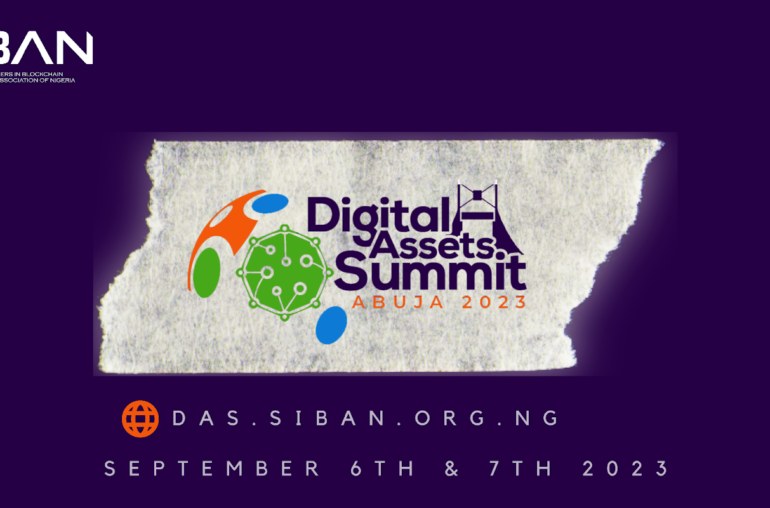Earlier this week, President Bola Tinubu directed financial and capital market authorities to monitor the increasing use of stablecoins and cryptocurrencies in Nigeria. This move acknowledges the rapid transformation of the global financial system, driven by digital innovation and changing consumer behavior. Tinubu emphasized that the shift away from traditional banking systems presents emerging challenges that must be proactively managed.
This directive was given at the 18th Annual Banking and Finance Conference of the Chartered Institute of Bankers of Nigeria in Abuja where President Bola Tinubu, represented by Minister of Finance Wale Edun, highlighted the rapid evolution of the global financial system. Tinubu emphasized the need for Nigeria to adapt to this changing landscape, particularly with the growing use of stablecoins and cryptocurrencies. He directed financial and capital market authorities to monitor these emerging trends to ensure financial stability and security.
Regulatory Oversight
The Securities and Exchange Commission (SEC) has intensified its regulatory oversight of digital assets following the enactment of the Investment and Securities Act 2025. This legislation empowers the SEC to license and supervise Virtual Asset Service Providers (VASPs), including exchanges and custodians, ensuring compliance with stringent Know Your Customer and Anti-Money Laundering standards. According to President Tinubu, “There is a digital revolution. So many people now are not using the banking system to make payments. They’ve turned to stablecoin. They’ve turned to digital currency.”
Why Track Stablecoins and Digital Currencies?
Tracking stablecoins and digital currencies is crucial for Nigerian authorities to ensure financial stability, prevent illicit activities, and protect consumers.
By monitoring these digital assets, authorities can identify potential risks and opportunities, enabling them to develop effective regulations and policies that promote innovation while safeguarding the financial system.
This proactive approach will help Nigeria navigate the rapidly evolving digital landscape and harness the potential of digital assets for economic growth.
In a Linkedin post, Oye Shobowale-Benson, a finance and blockchain specialist with background in asset management, audit, and risk leadership, believes that tracking cryptocurrency transactions is vital, and that Nigeria must also innovate by building rails. In his words, “By mandating the tracking of cryptocurrency transactions, the Central Bank of Nigeria at least gains an eagle’s-eye view of market activity” as “visibility is the foundation for shaping smarter regulations around CBDCs and stablecoins” because “it signals that oversight is no longer blind.”
However, Shobawale-Benson also believes that “visibility must evolve into sovereignty.” How? “If tracking only leads to surveillance without innovation, Nigeria risks control without progress. Under a sovereign alignment lens, the real goal should be building rails; CBDCs and stablecoins anchored in Nigerian interests, that both regulate and empower.” This is because “the measure of success will be how quickly it translates into sovereign infrastructure.”
Shobowale-Benson appears to be recommending that the CBN needs to ensure that it adopts an approach that safeguards the supreme authority of the state, while also ensuring global competitiveness.
Read also: Virtual assets and investment scams could surpass regular money laundering – EFCC Chairman
Teething Issues and Pain Points in Nigeria’s Virtual Asset Sector
However, the effectiveness of tracking stablecoins and other cryptocurrencies depends on the ability of Nigerian authorities to adapt to the rapidly changing digital landscape. The country’s SEC has taken significant steps in regulating digital assets, but certain realities still present considerable challenges. The Nigerian government’s decision to block leading crypto platform websites since early 2024 warrants reevaluation in light of subsequent developments. Critics contend that such stringent measures may yield unintended consequences, driving transactions into less transparent channels and ultimately hindering efforts to track and regulate stablecoin and virtual asset transactions, as directed by the President. This is counterproductive.
A more nuanced approach might involve reassessing the blocking order, considering the progress made by the Nigerian government in regulating the crypto space. By doing so, authorities could potentially create a more transparent and inclusive environment for crypto transactions, aligning with the President’s directive.
This approach would allow for a more effective implementation of regulatory frameworks, ensuring that the government’s objectives are met while minimizing the risk of unintended consequences. By striking a balance between regulation and innovation, Nigeria can foster a thriving crypto ecosystem that supports economic growth and financial inclusion.
Rume Ophi, a leading crypto analyst, has raised concerns about the feasibility of enforcing tighter oversight on cryptocurrency transactions in Nigeria, given the current regulatory landscape. “How can we effectively implement stricter monitoring without first establishing clear regulations for stablecoins?” Ophi queries. “Without a progressive approach to regulating the industry, enforcement efforts may face significant challenges.”
Ophi’s statement highlights the need for a well-defined regulatory framework that addresses the unique characteristics of stablecoins and other digital assets. By establishing clear guidelines and standards, Nigerian authorities can create an environment that fosters innovation while ensuring financial stability and security.
To achieve this, Ophi suggests that regulators should prioritize developing comprehensive regulations that account for the complexities of the crypto industry. This could involve engaging with industry stakeholders, international partners, and experts to craft a framework that is both effective and adaptable to the rapidly evolving digital landscape.
Ultimately, Ophi’s concerns underscore the importance of a thoughtful and informed approach to regulating cryptocurrencies in Nigeria. By taking a progressive and collaborative stance, authorities can create a regulatory environment that supports innovation, protects consumers, and promotes financial stability.
Read also: Crypto: Nigeria is ready for business, says SEC Director-General
Similarly, Stanley Golomo, Chairman of the Restoration Committee of the Stakeholders in Blockchain Technology Association of Nigeria (SiBAN), expressed concerns about the Securities and Exchange Commission’s (SEC) slow pace in processing applications for the Accelerated Regulatory Incubation Programme (ARIP). Over 80 applications were reportedly submitted to the SEC by the end of 2024, yet the SEC is still conducting due diligence, citing the need for a third level of scrutiny before issuing provisional licenses. “I must commend the Nigerian government for the gradual progress it has made over the last few years concerning addressing the risks associated with virtual assets adoption in the country. For instance, I am happy to see the Nigerian Financial Intelligence Unit (NFIU) permitting virtual asset service providers (VASPs) to now register on its goAML platform with or without SEC license so relevant agencies can have some visibility on crypto transactions. The Economic and Financial Crimes Commission (EFCC) is also doing its bits, improving its capacity and work in the virtual assets sector. Where I believe we need to effectively and efficiently accelerate and streamline is the SEC’s registration and licensing channel.”
The concerns raised above highlight the challenges currently faced by VASPs, especially crypto startups in Nigeria, which includes the following:
- Delays in Licensing: The SEC’s prolonged review process has left many applicants in limbo, unsure of when they will receive their provisional licenses.
- Regulatory Uncertainty: The slow pace of the application process creates uncertainty for businesses, making it difficult for them to plan and invest in the Nigerian market.
- Absence of a Level Playing Field: While the very few operators who have been given provisional license have started enjoying some leverage since July 2024, the same thing cannot be completely said about other applicants—and worse still, operators who are willing to apply but are unable to because the application window since closed, and no announcement has been made by the SEC regarding the next window.
To address these concerns, Golomo suggests that the SEC should consider the following:
- Streamline the Application Process: Implement a more efficient review process to reduce delays and provide clearer timelines for applicants.
- Improve Communication: Provide regular updates to applicants on the status of their licenses and any additional requirements needed for approval.
- Enhance Transparency: Publish information on the ARIP process, including the list of applicants, review timelines, and application dates for future cohorts.
By addressing these issues, the SEC can foster a more transparent and conducive environment for VASPs and transparent industry for the government in Nigeria. This will not only promote innovation and growth in the industry but also significantly enhance investor confidence in the emerging virtual assets sector. Given Nigeria’s leadership in crypto adoption both on the continent and globally, a robust regulatory framework will further solidify the country’s position as a hub for digital assets, driving economic growth and financial inclusion.
Looking Forward
Nigeria can create a robust regulatory framework for digital assets, promoting innovation while ensuring financial stability and security. The government should prioritize collaboration, transparency, and efficiency in its approach to digital asset regulation, enabling the sector to thrive and contribute to the country’s economic growth. Nigeria does not have all the time in the world.
Read also: “Nigeria is Open for Stablecoin Business”, says SEC Nigeria. But reality points otherwise.
Discover more from Crypto Asset Buyer
Subscribe to get the latest posts sent to your email.





